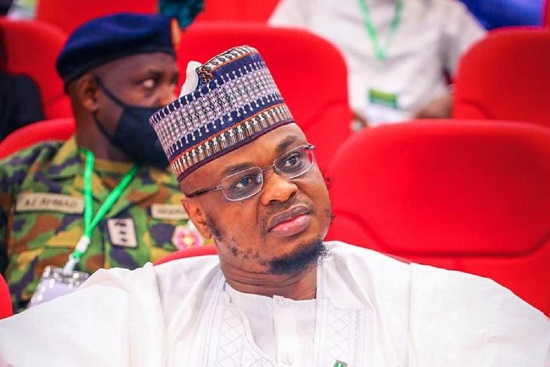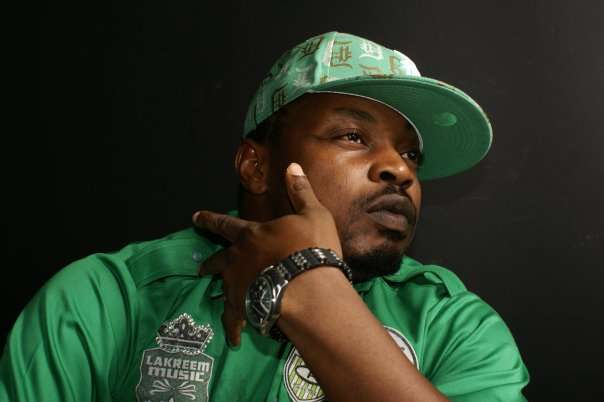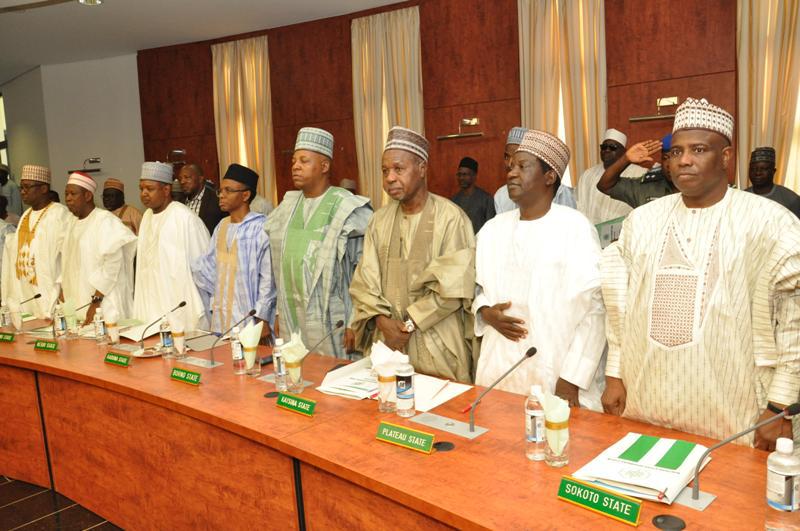On Christmas day in 2009, Nigeria’s Umar Farouk Abdulmutallab, aged 23, having been born December 22, 1986, attempted to detonate plastic explosives that were hidden in his underwear. He had boarded a Northwest Airlines Flight 253 heading from Amsterdam to Detroit, Michigan, with 289 passengers on board. Providence however rescued those souls as the explosives refused to explode, burning instead Abdulmutallab’s laps and genitalia. About three years after, on February 16, 2012, a United States federal court convicted him on eight counts bordering on his criminality. These included an attempt to unleash a weapon of mass destruction. Abdulmutallab got a term of sentencing for life and another 50 years without parole. Since then, he has been sequestered at the ADX Florence federal prison in Colorado, America.
I will return to this grisly narrative presently.
Whenever the west cites the 64 AD example of Nero fiddling while Rome was burning, Nigeria goes into historical kitty to flaunt hers. The fiddling Nero is a classical example of governmental neglect of duty and focus on frivolities. Or trivialities. Nigeria’s own Nero is the story of the first and only Prime Minister in the history of Nigeria, Abubakar Tafawa Balewa. As Muhammadu Buhari sits cross-legged and picking his teeth in search of some interloping strands of meat, 57 years ago, Balewa did same. Separated by several kilometers in their places of ancestry, Balewa’s Bauchi several Sahelian deserts away from Buhari’s Daura, both leaders are however tragically united by their gross insouciance to raging matters of state. Nigeria is today literally being consumed by a ball of fire in form of ricochets of guns booming in virtually every state of the country. Buhari is however not aware. As Baal, god of the Sidonians, lapsed into bothersome silence, even as 450 of its prophets invoked its spirit on Mount Carmel, Buhari has slid into his characteristic sleep, dead to the tinder of fire that is burning Nigeria.
Backtrack to 1963 and 1964 Nigeria. The national census and the 1964 Federal Elections had thrown the country into a bedlam. This was garnished by blood flowing from the orgy of killings in the Western Region. Balewa however chose to little the acrimonious and vengeful spillage of blood. In June, 1964, as he toured Benin, just like Buhari’s hirelings placed the blame of the Nigerian conflagration on the media, Balewa too said he could not judge the intensity of lawlessness in the West on account of newspaper reports of the brigandage. Balewa was unworried and unconcerned about the slide. As he departed Nigeria for Accra to attend an OAU meeting in October, 1965 at the Ikeja airport, the Prime Minister cynically told a reporter who asked if he wasn’t bothered by the fire raging through the western region that, “Ikeja is part of the West and I cannot see any fire burning.” Exactly two and half months after that statement, specifically on January 15, 1966, that fire he couldn’t see consumed him in Nigeria’s first military coup which ended his life.
Advertisement
As it is, Isa Ali Pantami, Nigeria’s Minister of Communications and Digital Economy, is the fire burning Nigeria now that Buhari too cannot see. Or is pretending not to see. Though with his government’s overt pampering of violence, bandits and insurgents, no one in their right senses expected Buhari to do away with or prosecute Pantami over a truckload of allegations of his insurgency-baiting words in recent past, the way the presidency diffidently told Nigerians to go jump inside the river last Thursday was however benumbing. The cusp it hung its arguments was so baffling that you would wonder if we were indeed not in Balewa’s First Republic. In a release defending Pantami, Buhari, through his Senior Special Assistant, Garba Shehu, said that because Pantami “had been leading the charge against illegal data deductions and pricing… revolutionized government’s virtual public engagement to respond to COVID-19 and save(d) taxpayers’ money… established ICT start-up centres to boost youth entrepreneurship and create jobs… changed policy to ensure locally produced ICT content is used by ministries…(and) deregistered some 9.2 million SIMs – ending the ability for criminals and terrorists to flagrantly use mobile networks undetected,” therefore, allegations that he was hands-in-gloves with insurgency and authored views not different from Abubakar Shekau’s are immaterial. How I wish my late teacher, Prof Campell Shittu Momoh, were here to spank Shehu’s irreverent buttocks for that ill logic and assault on the god of symbolic and deductive logic.
Buhari then leapt into indefensible cants. In doing, this, he made claims that were either deliberately misleading or demonstrative of a government that hypocritically has two different value systems. The release canvassed that, since Pantami made the said violence-baiting words “in the early 2000s,” when “the minister was a man in his twenties” and “next year, he will be 50,” Nigerians should know that “time has passed” and he should not be made to answer for those words. That is decidedly an arithmetic of deceit. If Pantami canvassed those extremist views in “the early 2000s” and “next year, he will be 50,” a la the presidency, then Pantami made the statements in his thirties in selfsame “the early 2000s.” In very unmistakable manner, that release must have convinced doubting Thomases who didn’t believe that in Buhari’s reckoning, no northern Moslem can do any wrong, in the name of region or religion.
In law, 18 years is the age of responsibility. At that age, a person is deemed to be old enough to carry the cross of his actions, inactions and deeds. But because the Buhari government is so grossly consumed by the hail of nepotism and justification of violence “in the name of region or religion,” Pantami had not crossed that consequential age of responsibility.
Advertisement
If you place Abdulmutallab – the lad whose painful story I narrated above – and his extremist views beside acidic views alleged to have been uttered by Pantami, they share same crimson colour, both united by extremism. For instance, Abdulmutallab had said, “The Koran obliges every able Muslim to participate in jihad and fight in the way of Allah…I carried the device to avenge the killing of my Muslim brothers and sisters… ” He called the failed explosives laden to his underwear on that flight “blessed weapon” and claimed the motive for wanting to bomb 289 people in the flight as due to “the tyranny of the United States.” Flip to Pantami’s and tell me the difference in them.
What the Buhari justification of Pantami’s extremist views means is that if Abdulmutallab were to have been in Buhari’s Nigeria, his “blossoming youth” would not be “cancelled” as the US did of Abdulmutallab. All he needed to do, according to Buhari, through Shehu, was to promise “he will not repeat them” and “publicly and permanently condemn(ed) his earlier (action) as wrong” and he would be in the clear.
Buhari’s sense of justice is one of the weirdest in human history. While this sense of justice advocates rehabilitation for “repentant” insurgents, it leaves his victim to wallow in pains. It is this same skewed sense of justice which got Buhari to seek the 36 state governments’ lands and water belts for Fulani herdsmen involved in commercial pastoral venture while it is less bothered by the travails of Nigerian poultry farmers whose business is today in comatose due to governmental neglect, “in the name of region and religion.”
Today, terrorism is Nigeria’s major national challenge; of course, spurned by absence of leadership. There is no doubt that Nigeria is bleeding from all her major arteries. The number of people who have been killed in the last six months should rival the casualty figures in any major war. Nowhere is safe. A couple of days ago, three children among kidnapped students of Greenfield University, Kaduna, were killed like chickens. Bandits are killing in scores in Zamfara. UNHCR, the UN Refugee Agency, claimed that about 65,000 Nigerians were propelled to flee the country following an April 14 series of attacks by armed groups on Damasak, a town located in the north-eastern part of Borno State. Eight people were reported killed with many injured. Same UNHCR claimed that an upsurge of violence that has held the jugular of the Lake Chad Basin has so far uprooted 3.3 million Nigerians from their homes, a figure that includes about 300,000 Nigerian refugees and excludes about 2.2 million others who have been displaced in north-eastern states of Adamawa, Borno and Yobe. In the first quarter of last year, Global Rights Nigeria, an organization that keeps tabs on Nigeria’s cadaver harvest, said that at least 1,416 lives were lost to violence within that period. It is apparent that a quadruple more of that figure has since died. But for Buhari’s defence of region and religion, those people may still be alive today.
Advertisement
To say that Nigeria is a killing field is an understatement. The twin evils of audacity of spillage of blood in major parts of the northern part of Nigeria and the absence of government have lionized renegades in other parts of the country to unleash their terror on defenceless people. Violence has been effectively democratized in all the nooks and crannies of the country, with all the regions competing to outdo one another in the violence roulette. Nigeria’s Southeast is not left in the orgy of violence. While IPOB inflicts its anger and fury on the Nigerian state, a state of fear grips our compatriots in that enclave. Unidentified anarchists set prisoners free, burn police stations and kill policemen, blinded from the fact that the victims are their own kin. On Thursday last week, the city of Enugu was a bedlam. The New Artisan area had been set on fire. Soldiers from the 2 Division of the Nigerian Army literally took over the Coal City. They strewn up the Otigba Junction Roundabout, even amidst an evening downpour. You would think that there was a coup. Again on Saturday, news came in that the country home of Hope Uzodinma, governor of Imo State, had been set ablaze by suspected hoodlums. They reportedly threw petrol bombs into the house located in Oru East local government area of the state. Sorrows, tears and blood, apologies to Fela Anikulapo Kuti, are the regular trade mark in the Nigeria under Buhari.
While violence has become a recurring decimal in the globe, world leaders are taking steps to track and tame the incubus. Here in Nigeria, there are manifest feelings that the body language of the northern ruling elite, including that of the president, is in support of violence and agents of violence, in the name of region and religion. Right from the days of Goodluck Jonathan, there have been claims that the outlawry that has claimed thousands of lives of Nigerians is being given vent and funded with millions of dollars by powerful men in government who cover their outlawry in wide babanriga. Pantami is the first major identifiable link that Nigeria has had so far to that high-level allegation. The whole world must be laughing itself silly on account of Nigeria’s Albert Camus absurdity under Buhari. How can a man with such toxic views, which he claimed to have reneged but with scant public evidence, be in charge of Nigeria’s sensitive data ministry:? Christians whose data are in the hands of such a man who advocated their killings in the name of God are as vulnerable as a man who rubbed gasoline on his body and standing beside the mai suya’s red hot iron gauze.
A man who, “in the early 2000s,” a la Buhari’s Shehu, who was then “in his twenties” but allegedly superintended over the killing of a final year student of a university, on allegation that he distributed Christian tracts; who openly expressed a voyeur attraction for Osama bin Laden’s bloodsucking evangelism; who allegedly had dalliance with terrorists and expressed extremist views, is not one you embrace and give a pat in the back, even when he claims he had repented of them. Or even if his brilliance took your country to the moon. The biblical Saul example that is being hoisted by some felons here is Satanic and inappropriate. Repentance not only comes with genuine confession, sobriety and contriteness, the repentee (pardon my invention) is still not unaccountable to the repentor (again, pardon, please) which in this case is the Nigerian state, for the crime of his past, once he is within the radius of the age of crime liability. As exhibited in the sentencing of the policeman who killed America’s George Floyd last week, the arc of the universe is tilted towards justice. Nigeria’s shouldn’t tilt towards bloodshed and mindless justification of blood-baiting felons, in the name of region and religion.
Rather than come out with a blanket shawl covering Pantami, the first step of a government that is not allied to blood-letting should be to ask its minister accused of wearing an apparel soaked in blood of innocent people to step aside for thorough investigation. Many have said that, judging by alleged health challenge of the president which necessitates proxy governance of Nigeria, many of the governmental decisions attributed to him, including the Garba Shehu release on Pantami, Buhari is everything but aware of them. They might have been decisions taken by powerful proxies, Buhari having retreated into his inscrutable and inaccessible world.
Advertisement
There is no doubt that, as Garba Shehu argued, powerful conglomerates and persons might have escalated the Pantami riddle because his ministerial decisions took oily morsels from their throats. When such victimizers unleash a mob on their victims, only God can come to their rescue. However, Pantami is not denying many of these blood-dripping claims. The presidency may argue in favour of the timing of the hail of allegations against its anointed ministerial son but not its veracity, nor the age of responsibility for crime. It is not judicially empowered to so do.
By this wooly shawl spread round Pantami to cover the blood oozing out of his hands, Buhari is audaciously saying, 57 years after Balewa: “Ikeja is part of the West and I cannot see any fire burning.” Well, he will have his Pantami retained as minister. The carnage on innocent Nigerians will continue. History reveals however that when leaders like this think it is peace and safety, destruction sidles in at night like a fox. Blood is spiritual and shedding of its corpuscles is like water, it will find its course. Everyone who aids and abets it will be answerable to its burning fury. Blood devours like foxes do to chickens in their pen, leaving in its trail blood, weeping, wailing and gnashing of teeth.
Advertisement
Views expressed by contributors are strictly personal and not of TheCable.
1 comments








You have successfully analyse the the real dark triad and the focal points of some elements of governance – Festus Adedayo